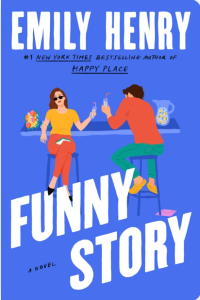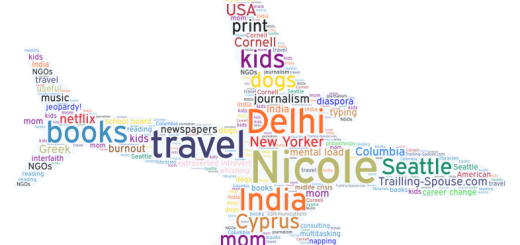Reflecting on hyperlinked communities: Library sleepovers

The Hyperlinked Community-oriented library program that most piques my interest from this week’s INFO 287 lecture is the library sleepover, sometimes also termed a lock-in (Stephens, 2024). This seems to combine two major unfulfilled desires I had as a kid: to go to a sleepover party (and actually get to stay the night, which my immigrant parents could not condone) and to stay at the library as long as I wanted (which standard operating hours would not allow).
Actually, I recently read a new Emily Henry novel called Funny Story, in which the protagonist, a children’s librarian, puts together a successful overnight read-a-thon at her northern Michigan library — but I hadn’t realized this kind of thing actually happens in real life. Searching for more examples via the SJSU library and Google, it seems these programs can be organized as fundraisers, with admission to the event auctioned off or with tickets sold (Dillon, 2009), or as activities for a small group that’s already highly structured and supervised, such as Girl Scouts (Chatterjee, 2006).
I couldn’t find much evidence on whether this type of programming is gaining traction or even being considered at most U.S. libraries, however. Presumably, safety concerns and budgetary limits would be two significant barriers to getting a library sleepover approved for the first time. My teenaged son had looked into proposing a lock-in movie night event for his grade (about 90 students) at his school’s library and gym — but even if he could have secured the required permissions (bit of a tall order at an international school full of embassy kids), the cost alone would have exceeded $2,000 to cover the security and IT staff, plus more if we had wanted to include the cost of dinner, popcorn, and breakfast. And yet parents — particularly expat families — wish there were more safe, supervised activities for their teenagers to participate in on weekend evenings…
Featured image from Unsplash
Text by @nicole287
References
Chatterjee, J. (2006). Camp library: sleepovers can form a lasting relationship between kids and the library. School Library Journal, 52(5), 35. https://link-gale-com.libaccess.sjlibrary.org/apps/doc/A146124698/BIC?u=csusj&sid=summon&xid=fbffc7c4
Dillon, S. (2009, April 27). The library sleepover. ALSC Blog. https://www.alsc.ala.org/blog/2009/04/the-library-sleepover/
Henry, E. (2024). Funny story. New York, Berkley.
Stephens, M. (2024). INFO 287, Module 5: Hyperlinked Communities (video lecture). San Jose State University. https://287.hyperlib.sjsu.edu/module-5-hyperlinked-communities



@nicole287 Your post speaks to my soul! I too would have absolutely loved a sleepover at the library as a child. My family was not big on sleepovers, especially since most of them were Friday to Saturday (which is when my family went to synagogue and celebrated Sabbath). So, the idea that I could have a sanctioned library sleepover would have fulfilled some serious wishes. I can imagine that this type of lock-in/sleepover would be a serious time/money investment. Our high school had a lock-in party for all graduates and it was a huge endeavor. Still, the amount of fun it would bring might just be worth the effort!
Side note– I also just finished “Funny Story” (I love all of Emily Henry’s romances). What did you think of the book? I actually appreciated Henry’s portrayal of the main character. I usually find the way authors write about public librarians to be laughable, but this one felt pretty accurate!
Thanks, @rcsyme! I generally enjoy Emily Henry books (especially as summer reads), but it was a bonus to get one with a librarian protagonist just as I’m starting this program… glad it seemed accurate to you!
@nicole287 You are so right about all the hoops needed to jump through to make a library lock in happening. Yay for the libraries that can do it. Years ago, Michael Casey had a teen rock concert at one of his libraries and it made a huge splash because it was so out of the ordinary. I hope we keep working toward more things like that.
The other thing that I had to comment on is you mentioned the book is set in Michigan and I just had to know where in Michigan. I looked it up and it seems to be that Waning Bay is based on Traverse City where I live.
https://www.traversecity.com/blog/post/good-traverse-city-reads/
So cool!